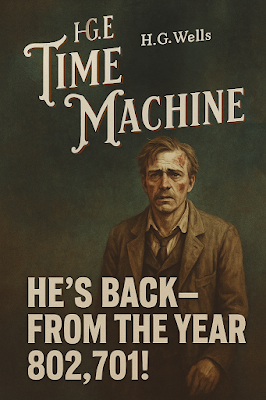IELTS Reading: How to Answer
Gap Fill Questions
Gap fill questions (also called completion tasks) are a common part of the IELTS Academic Reading test. In this type of question, you need to complete sentences, summaries, tables, or flow charts using words from the reading passage.
Gap fill questions test your ability to find specific information and understand paraphrasing.
🧠 Types of Gap Fill Questions
You may be asked to complete:
-
Sentences
-
Summaries
-
Notes
-
Tables
-
Diagrams
-
Flow-charts
Each task will ask you to use words from the text, and you must follow the instructions exactly.
📏 Follow the Word Limit!
Read the instructions carefully. They will say something like:
-
NO MORE THAN TWO WORDS
-
ONE WORD ONLY
-
NO MORE THAN THREE WORDS AND/OR A NUMBER
🚫 If you write more than allowed, the answer will be marked wrong—even if the meaning is correct.
🎯 How to Answer Gap Fill Questions
Here’s a step-by-step guide with examples:
Step 1: Read the Instructions Carefully
Check the word limit. If it says “NO MORE THAN TWO WORDS”, don’t write three!
✅ Correct: renewable energy
❌ Wrong: renewable sources of energy
Step 2: Read the Text with Purpose
Look at the gap and try to guess what kind of word is missing: a noun, verb, number, place, etc.
Example Sentence:
The Amazon rainforest produces about _______ of the world’s oxygen.
You can guess the answer is likely a number or percentage.
Step 3: Highlight Keywords in the Sentence
Find the keywords near the gap that help you locate the answer in the text.
Example:
Sentence: The Amazon rainforest produces about _______ of the world’s oxygen.
Keywords: Amazon rainforest, produces, oxygen
Step 4: Scan the Text for Parallel Meaning
Look in the reading passage for synonyms or paraphrased ideas.
Text Example:
"The Amazon rainforest produces 20% of the world's oxygen."
🟢 Parallel meaning:
-
about = approximately
-
produces = generates, provides
-
20% = the number you need
✅ Answer: 20%
Step 5: Copy the Answer Exactly
Make sure the spelling is correct and the word comes directly from the text (unless you’re choosing from a box).
If the passage says “twenty percent”, but you're allowed ONE WORD AND/OR A NUMBER, then write 20%.
📝 Practice Example
Text:
"Marie Curie won Nobel Prizes in both Physics and Chemistry, making her the only person in history to achieve this distinction."
Question:
Marie Curie won Nobel Prizes in both _______ and Chemistry.
✅ Answer: Physics
🔑 Tips for Success
-
Underline keywords in the sentence and find matching words or phrases in the passage.
-
Don’t use your own words – only take words from the passage.
-
If the answer must be ONE WORD, avoid writing a phrase like “new energy”.
-
Be careful with spelling – even a small mistake can cost you the point.
-
Watch out for articles like a, an, the. Only include them if necessary for grammar and if the word count allows.
🔄 Common Keyword Paraphrases
| In the Gap Fill Sentence | In the Passage |
|---|---|
| Cause | Reason, lead to, result |
| Increase | Rise, grow, go up |
| Discover | Find, identify, uncover |
| Important | Significant, vital |
| First | Initial, earliest |
✅ Final Thought
Gap fill questions test your understanding of both vocabulary and grammar. Practice scanning for meaning and recognizing different ways the same idea is expressed.
The more you read, the better you’ll get at spotting key words and synonyms quickly
📝 Gap Fill Practice – IELTS Reading Style (B2 Level)
1.
Text:
"The Eiffel Tower, completed in 1889, attracts nearly seven million visitors each year, making it one of the most visited monuments in the world."
Sentence:
The Eiffel Tower was completed in _______.
2.
Text:
"Koalas sleep up to 20 hours a day to conserve energy, as their eucalyptus diet provides little nutrition."
Sentence:
Koalas sleep for up to _______ each day.
3.
Text:
"Mount Everest, which is part of the Himalayan range, is the tallest mountain above sea level, standing at 8,848 metres."
Sentence:
Mount Everest reaches a height of _______ metres.
4.
Text:
"Wind turbines generate electricity by using the power of the wind to turn large blades connected to a generator."
Sentence:
Wind turbines produce electricity using the force of the _______.
5.
Text:
"Shakespeare is believed to have written 39 plays and over 150 sonnets during his lifetime."
Sentence:
Shakespeare is thought to have written 39 _______.
6.
Text:
"The Great Wall of China was originally built to protect Chinese states from invasions by nomadic tribes."
Sentence:
The Great Wall was built to defend against _______.
7.
Text:
"The human brain controls both voluntary and involuntary actions, such as breathing, movement, and digestion."
Sentence:
Breathing and digestion are examples of _______ actions.
8.
Text:
"Photosynthesis is the process by which plants use sunlight to make food from carbon dioxide and water."
Sentence:
Plants use _______ during photosynthesis to make food.
✅ Answer Key
-
1889
-
20 hours
-
8,848 (or 8,848 metres*)
-
wind
-
plays
-
invasions (or nomadic tribes*)
-
involuntary
-
sunlight






